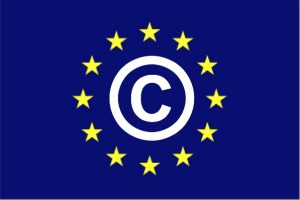 The media and political debate continues to rage: should new obligations be put on online platforms and other internet intermediaries to try to limit the availability of unlawful content online, and if so what should those obligations look like? This article summarizes where that debate has got to among European lawmakers, and reviews hot-off-the-press EU Commission Communication on measures taken by platforms tackling illegal content online.
The media and political debate continues to rage: should new obligations be put on online platforms and other internet intermediaries to try to limit the availability of unlawful content online, and if so what should those obligations look like? This article summarizes where that debate has got to among European lawmakers, and reviews hot-off-the-press EU Commission Communication on measures taken by platforms tackling illegal content online.
Some scene-setting
First, a brief recap of the current regime in Europe. Articles 12-14 of the E-commerce Directive contain protection from liability for those acting as “mere conduits”, and those who are caching, or performing hosting services. The most relevant for the present debate is the Article 14 hosting defence. This shields information society service providers (such as ISPs, platforms, social media, etc) from liability for content stored at the request of a user of the service as long as they do not have actual knowledge of the illegal activity/information and are not aware of facts and circumstances from which the illegal activity/information is apparent. If the provider obtains such knowledge/awareness they are still protected as long as they act “expeditiously” to remove/disable access to the information (notice and take down).
This goes hand in hand with Article 15 of the E-commerce Directive, which prohibits general obligations being imposed on providers to monitor the information transmitted/stored, or actively to seek facts or circumstances indicating illegal activity. It is Article 15 which has cropped up most in the controversy surrounding the Commission’s proposed new Copyright Directive, published in September last year.
It is worth recapping here that the hosting defense covers not just technical storage providers, but can also apply to sophisticated platforms doing more than mere storage.
So is Europe moving away from the current regime?
There are two aspects to why people are asking this question: case law, and recent EU legislative proposals and policy documents.
Case law
In 2015 the European Court of Human Rights gave a decision in the Delfi case, which some commentators took to undermine intermediary liability protection. In Delfi the operator of a news portal was found liable by an Estonian court for reader comments posted under an article. By the time the case got to the ECtHR, the issue was whether the operator’s freedom of expression rights had been violated by such a finding. However, the ECtHR did not examine the correctness of the Estonian court’s original finding that the operator did not benefit from the hosting defense. (By contrast, a UK case (Karim v Newsquest) has held that the defense was available to a news website in respect of reader comments.) Accordingly, although the case got some headlines at the time, the European supra-national court was not itself making a finding that hosting protection did not apply in such circumstances.
A similar case came before the ECtHR in 2016: MTE and Index.hu v Hungary. Here, the Hungarian Courts found a portal liable in respect of reader comments posted to articles. Various bases were given for finding liability, but the highest Court considered the portals were not intermediaries at all. Again, the ECtHR did not go behind the domestic Court’s finding on the hosting defence, albeit this time did find there had been a violation of the portal’s freedom of expression rights.
More recently, there have been two judgments issued by the Northern Ireland High Court which drew attention for appearing to erode the hosting defence. In CG v Facebook Ireland Ltd and J20 v Facebook Ireland Ltd, the Court found Facebook liable for certain information displayed on user profile pages, as a misuse of private information. However, the Court of Appeal (‘NICA’) subsequently overturned various aspects of the High Court’s finding in the CG case. Significantly, the NICA disagreed with the argument that the platform knew or ought to have known about the content without the need to be notified simply because it was similar to content previously found to be unlawful. This could only have been possible if Facebook had an obligation to monitor user content, which is incompatible with Article 15 of the E-commerce Directive. The Court of Appeal also reduced the level of damages awarded in the J20 case. It is not yet known to what extent the NICA analysed the hosting defence arguments in that case, as only a summary of the Judgment has so far been published at the time of writing.
Proposed Copyright Directive
Following various consultations as part of its Digital Single Market strategy, in September 2016 the Commission published draft text for a proposed new Copyright Directive. Article 13 of the draft Directive is in part designed to try to address a so-called “value gap”, a name used by rights holders and others for the perceived gap between the royalties generated for creators/owners of copyright works and the revenue generated by websites making use of those works. The gap is said to arise in particular due to widespread online presence of unlicensed content. Article 13 would oblige service providers that store and provide access to large amounts of works uploaded by users to: (1) take measures to ensure the functioning of agreements concluded with rights holders for the use of their works, and (2) prevent the availability on their services of works identified by rights holders through cooperation with the service providers. An example given of such measures is effective content recognition technology.
Both sides of the debate (rights holder vs intermediary) have been vociferous in their commentary. Many observers have also pointed out the lack of clarity around how this regime (specifically, part (2) above) is supposed to fit with the prohibition on monitoring in Art 15 E-commerce Directive, and other EU legal instruments.
What’s the state of play right now?
At the time of writing, the position is that no consensus has been reached yet among European legislators about the fate of draft Article 13. To become law, text would need to be approved by both the European Parliament (elected members) and the Council (delegates from each Member State’s government). Of the European Parliament committees tasked to give Opinions, one declined, one is in progress and three have opined (in different directions). The lead committee responsible, Legal Affairs (JURI) is yet to report.
The European Council is also yet to adopt a common position. Two sets of questions have been submitted to the Council’s in-house lawyers regarding Article 13, one jointly by six Member States and one by Germany. These include questions about its compatibility with the EU Charter of Fundamental Rights, with Art 15 E-commerce Directive, and with the definition of “communication to the public” under the InfoSoc directive. The Estonian Presidency has meanwhile also made two alternative compromise proposals on Art 13.
There are suggestions there will be some delay from the original timetable, meaning that all in all a plenary Parliamentary vote maynot happen until the end of 2017/early 2018.
New Guidelines
The most recent development has been the publication on 28 September 2017 by the Commission of a Communication about tackling illegal content online. The thrust of the Communication is apparent from its sub-title “Towards an enhanced responsibility of online platforms“. According to its introduction, the Communication lays down a set of guidelines and principles for online platforms to “step up the fight against illegal content online”. From an IP perspective, content owners are likely to welcome the move. But many of these guidelines and principles will generate controversy (whether there is over-reliance on so-called trusted flaggers; whether sufficient heed is paid to either variation between laws of different EU countries about what content is illegal or to context, particularly when considering automated filtering technology). For present purposes, I will focus on proactive measures by online platforms.
According to the Commission, online platforms “should” adopt effective proactive measures to detect and remove illegal content online. It considers that this does not automatically lead to the online platform losing the benefit of the hosting defence. The Commission’s reasoning has two parts. First, it likens the taking of such measures to the sorts of acts found in L’Oréal v eBay not to amount to playing an “active role” in respect of the content (storing offers for sale, setting terms of service, being paid and providing general information to customers). Second, it recognises that proactive measures “may result” in that platform obtaining knowledge/awareness leading to a potential loss of the hosting defence, but notes that protection would not be lost if the platform takes expeditious action to remove/disable access. This second part could be seen as reducing the utility of the conviction in the immediately preceding the argument, and effectively narrows the question of liability to whether removal was expeditious in such cases (assuming the content concerned is in fact illegal). Platforms will also point out there is no real discussion of how this fits with the Article 15 prohibition on general monitoring duties. As a whole, the position puts much greater emphasis on platforms.
The Communication provides guidance and recognises it does not change the legal framework or contain legally binding rules. However, it is a tool for exerting political pressure and is put in strong terms (“the Commission expects online platforms to take swift action”). It is described as a first step. The document tells us that exchanges and dialogues with online platforms and others will continue and progress will be monitored to assess whether “additional measures” are needed. This includes the possibility of “legislative measures to complement the existing regulatory framework”.
Conclusion
The combination of proposed Article 13 of the draft Copyright Directive and the Commission’s latest Communication will lead some to conclude that Europe is indeed moving away from protecting internet intermediaries. It certainly appears that the two developments would place a much greater onus on platforms than is currently the case. A fuller picture will be known in May 2018, when the Commission says the work of ensuring “swift and proactive detection and removal of illegal content online” will be complete, and the Copyright Directive in final form. But the direction European policy makers are heading in is already evident.

![[IPWatchdog Logo]](https://ipwatchdog.com/wp-content/themes/IPWatchdog%20-%202023/assets/images/temp/logo-small@2x.png)

![[Advertisement]](https://ipwatchdog.com/wp-content/uploads/2024/04/Artificial-Intelligence-2024-REPLAY-sidebar-700x500-corrected.jpg)
![[Advertisement]](https://ipwatchdog.com/wp-content/uploads/2024/04/UnitedLex-May-2-2024-sidebar-700x500-1.jpg)
![[Advertisement]](https://ipwatchdog.com/wp-content/uploads/2024/04/Patent-Litigation-Masters-2024-sidebar-700x500-1.jpg)

![[Advertisement]](https://ipwatchdog.com/wp-content/uploads/2021/12/WEBINAR-336-x-280-px.png)
![[Advertisement]](https://ipwatchdog.com/wp-content/uploads/2021/12/2021-Patent-Practice-on-Demand-recorded-Feb-2021-336-x-280.jpg)
![[Advertisement]](https://ipwatchdog.com/wp-content/uploads/2021/12/Ad-4-The-Invent-Patent-System™.png)






Join the Discussion
No comments yet.